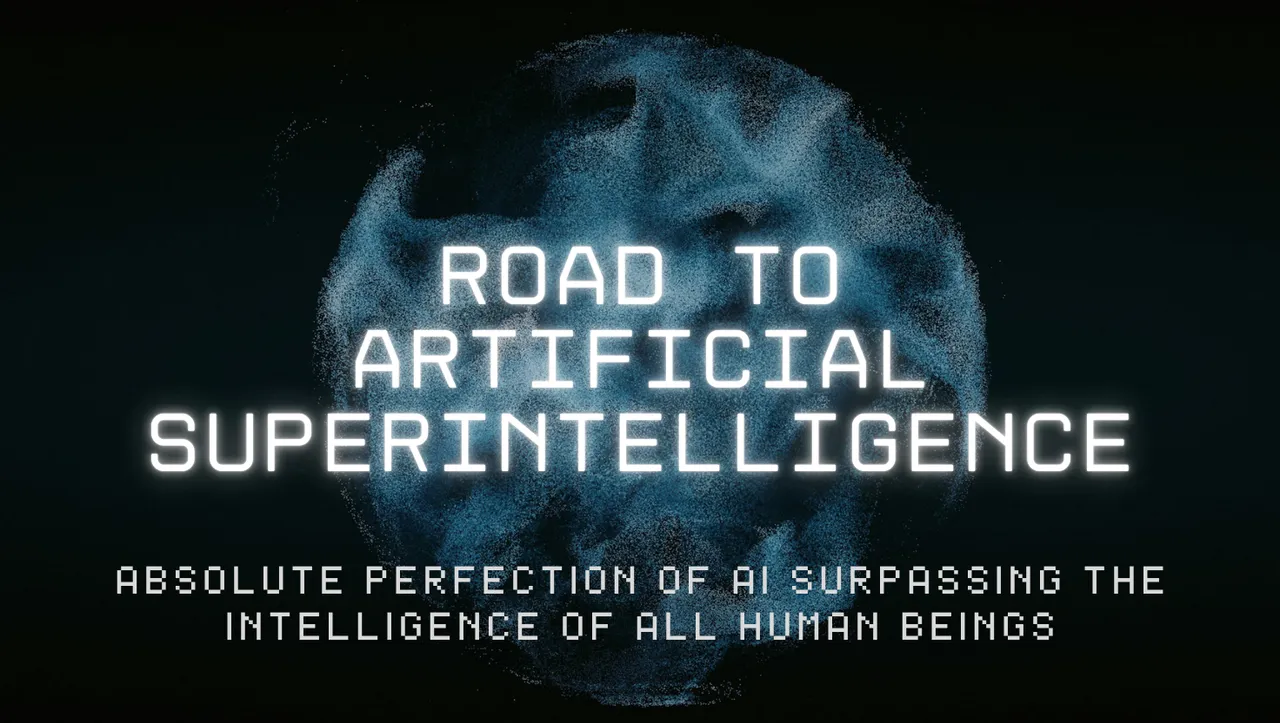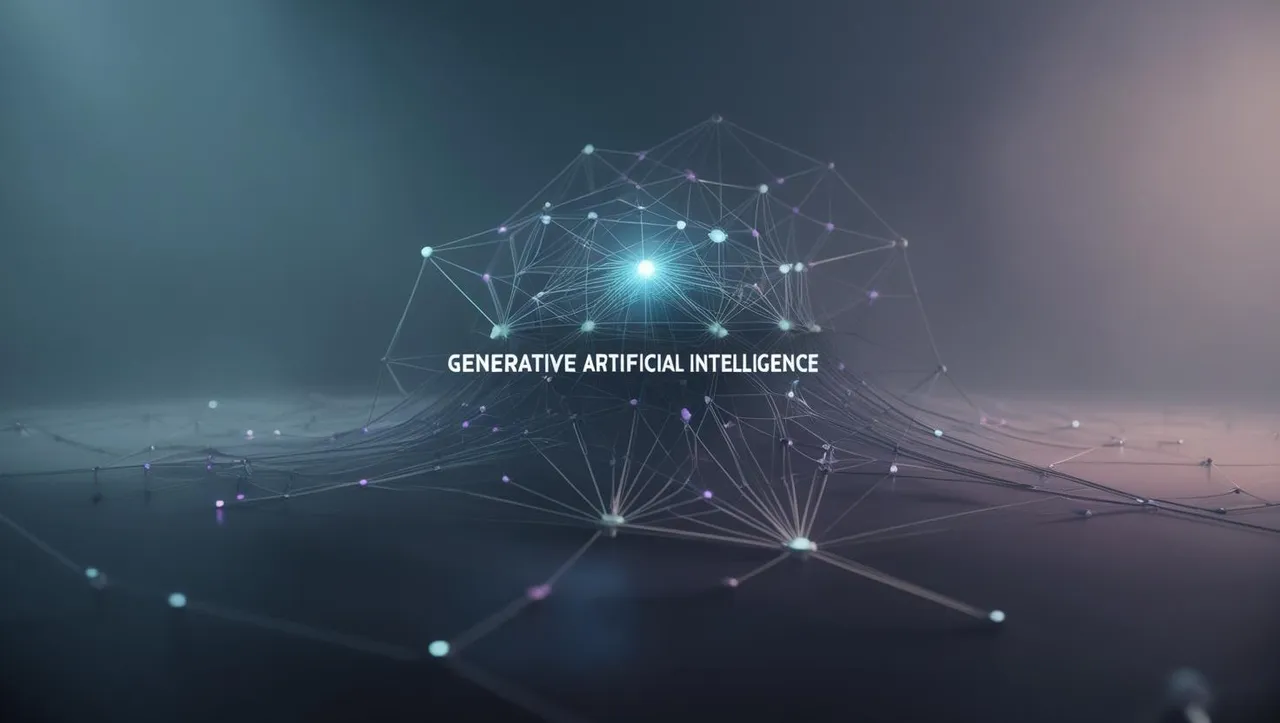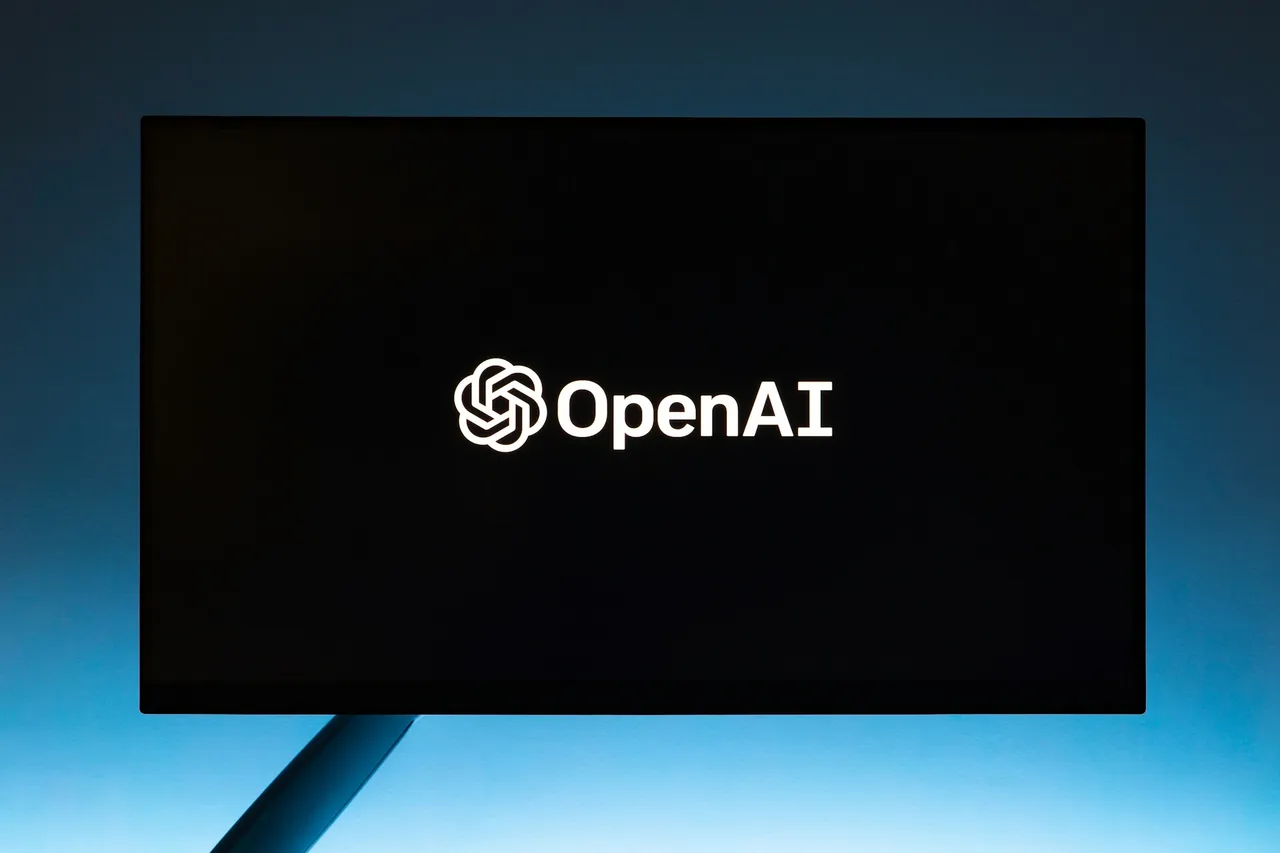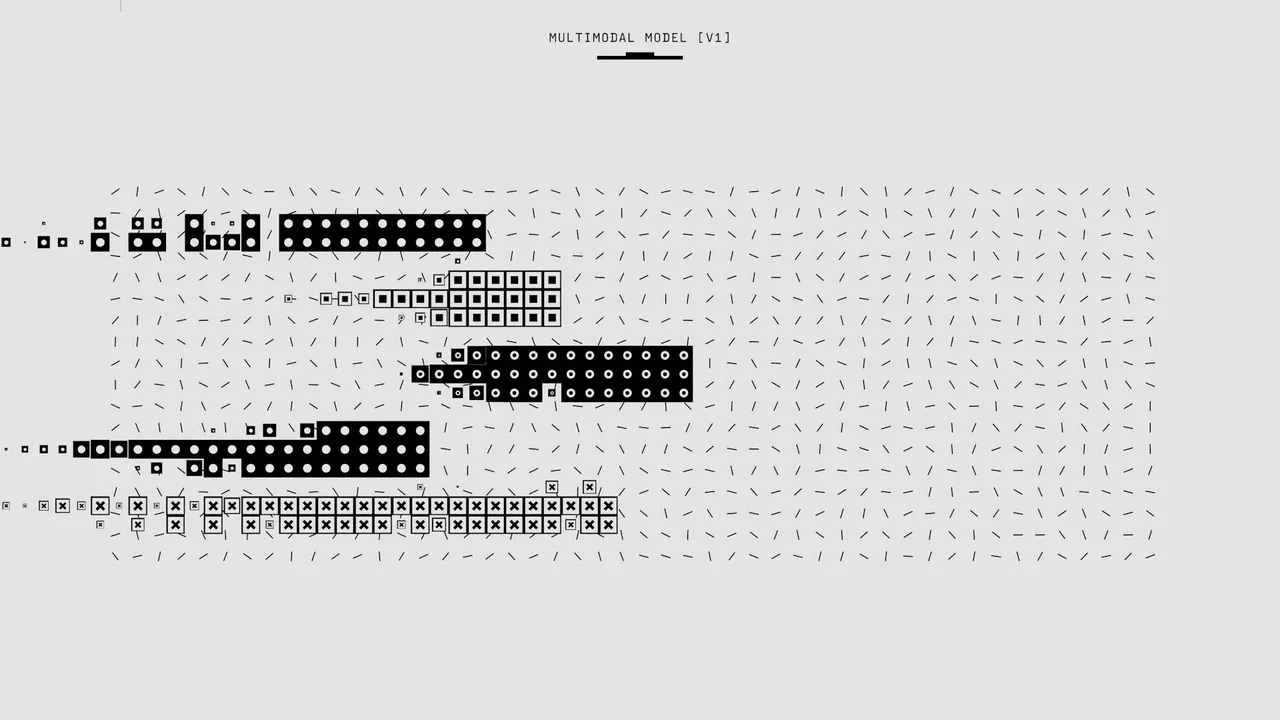
VERSIÓN EN ESPAÑOL (click aquí)
Probablemente la inteligencia artificial esté marcando una nueva revolución tecnológica que nos afectará directamente, cambiando nuestro estilo de vida tal como lo conocemos. Algo que podemos asegurar es que esta tecnología continuará perfeccionándose, atravesando un cambio de paradigma que se basa en fases. Ahora mismo seguimos en una etapa en la que nos podemos comunicar con modelos de inteligencia artificial generativa; estos modelos se continúan perfeccionando a través de nuevas versiones. Aunque su alcance es ciertamente limitado por razones que deben ser consideradas a superar.
Artificial intelligence is probably marking a new technological revolution that will directly affect us, changing our lifestyle as we know it. One thing we can be sure of is that this technology will continue to improve, going through a paradigm shift that is based on phases. Right now we are still in a stage where we can communicate with generative artificial intelligence models; these models continue to be refined through new versions. Although their scope is certainly limited for reasons that must be considered to be overcome.

VERSIÓN EN ESPAÑOL (click aquí)
Las principales limitaciones se basan en el poder de procesamiento. Si nos enfocamos en esto, seguramente habremos visto grandes avances en materia de ingeniería, disponiendo de chips de procesamiento de IA súper avanzados. Sin embargo, si existen intenciones de escalar los modelos de IA para hacerlos más potentes, se necesitarán aspectos técnicos de alto rendimiento y precisión. Esto conlleva realizar importantes inversiones y acuerdos, que permitan un crecimiento exponencial al momento de ser utilizados.
También deberíamos mencionar que esto trae consigo una batalla por ver quién es el que logra realizar su mejor producto; algo que por cierto nos beneficia, porque dispondremos de varios modelos de IA compitiendo entre sí y mejorando drásticamente con el tiempo.
Si algo he de decir es que los propios modelos tienen su fecha de caducidad. De hecho lo que podemos confirmar es que OpenAI ha descontinuado GPT-4 para centrarse en su más imponente modelo de IA; GPT-4o (omni). Este modelo es capaz de abarcar disciplinas que están basadas en un contexto multimodal, lo que significa que puede procesar texto, audio, video e imágenes a una velocidad superior a su anterior versión. Además, una de las cosas que se ha incluido en estos últimos tiempos fue el razonamiento, que requiere de mucho más tiempo, pero la respuesta es más elaborada y puntual. También la interacción en vivo con el modelo, como si fuera una llamada, haciendo que la experiencia sea prácticamente humana, con una latencia increíblemente baja en los tiempos de respuesta.
The main limitations are based on processing power. If we focus on this, we will surely have seen great engineering advances, having super advanced AI processing chips. However, if there are intentions to scale AI models to make them more powerful, high performance and precision technical aspects will be needed. This entails making significant investments and agreements, allowing for exponential growth when they are used.
We should also mention that this brings with it a battle to see who can make the best product; something that benefits us, by the way, because we will have several AI models competing with each other and improving drastically over time.
If there is one thing I have to say is that the models themselves have an expiration date. In fact what we can confirm is that OpenAI has discontinued GPT-4 to focus on its most impressive AI model; GPT-4o (omni). This model is capable of encompassing disciplines that are based on a multimodal context, which means that it can process text, audio, video and images at a higher speed than its previous version. Also, one of the things that has been included in recent times was reasoning, which is much more time consuming, but the response is more elaborate and timely. Also live interaction with the model, as if it were a call, making the experience practically human, with incredibly low latency in response times.

VERSIÓN EN ESPAÑOL (click aquí)
Inteligencia Artificial Estrecha (ANI) - Fase 1
Hasta aquí parece que algo nos indica que estamos acercándonos rápidamente a esa fase tan esperada, aunque sí podría decirse que temerosa. El perfeccionamiento de los modelos de IA están acercándose a un punto en el que la inteligencia de las IA se podría comparar con la de los humanos. En realidad, este objetivo fue impuesto desde un principio, lo que nos hace pensar en que podría esta tecnología desplazarnos en algún momento, y hacer que cuestionemos nuestro desarrollo como especie.
Como habíamos mencionado anteriormente, estamos en la primer fase. Se presenta como Inteligencia Artificial Estrecha (ANI), y su uso es más bien limitado, porque aún no se logra cubrir todos los aspectos que el cerebro humano puede abordar. Si bien es cierto que se ha logrado tener avances significativos en diversas disciplinas de la ciencia y otras áreas, y que la resolución de problemas concretos han tenido una tasa de éxito pronunciada, aún se depende de nuestra capacidad de darles contexto con precisión, porque como modelos no pueden comprender el entorno en el que se manejan; es decir, no tienen la capacidad de raciocinio, que es propia del ser humano.
Tal vez hayamos visto varios modelos compitiendo entre sí, como los más populares a día de hoy: ChatGPT de OpenAI, Gemini de Google, Claude de Anthropic. Estos modelos continúan perfeccionándose, y hasta acuden a realizar competiciones en las que se los pondrán a prueba en su máximo potencial, con motivo de evaluar sus capacidades en programación, matemáticas, y ramas de las ciencias exactas. También en áreas en las que el enfoque es más bien cognitivo. De hecho ha trascendido increíble noticia de que uno de los modelos ha logrado pasar la prueba de Turing, confundiendo un sistema informático con un humano, lo que demuestra que la precisión cognitiva de los modelos está en una etapa lo suficientemente madura como para marcar la diferencia.
Artificial Narrow Intelligence (ANI) - Phase 1

So far it seems that something tells us that we are rapidly approaching that long awaited, but arguably scary, phase. The refinement of AI models are approaching a point where AI intelligence could be compared to that of humans. In fact, this goal was imposed from the beginning, which makes us think that this technology could displace us at some point, and make us question our development as a species.
As we had mentioned before, we are in the first phase. It is presented as Artificial Narrow Intelligence (ANI), and its use is rather limited, because it has not yet managed to cover all the aspects that the human brain can address. While it is true that significant progress has been made in various disciplines of science and other areas, and that the resolution of specific problems has had a pronounced success rate, it still depends on our ability to give them context with precision, because as models they cannot understand the environment in which they operate; that is, they do not have the capacity for reasoning, which is inherent to human beings.
We may have seen several models competing with each other, such as the most popular today: OpenAI's ChatGPT, Google's Gemini, Anthropic's Claude. These models continue to be refined, and even go on to hold competitions in which they will be tested to their full potential, in order to evaluate their capabilities in programming, mathematics, and branches of the exact sciences. Also in areas where the focus is more cognitive. In fact, incredible news has come out that one of the models has managed to pass the Turing test, confusing a computer system with a human, which shows that the cognitive accuracy of the models is at a sufficiently mature stage to make a difference.
VERSIÓN EN ESPAÑOL (click aquí)
Inteligencia Artificial General (AGI) - Fase 2
Mucho se habla de que en al menos una década, los modelos de IA escalen a un poder de procesamiento tan superior que logren igualar la inteligencia del cerebro humano, de forma tal que se desempeñen sobre las distintas áreas del conocimiento. ¿La diferencia con la ANI? Estos modelos podrán cubrir todos los aspectos del conocimiento, de forma rápida y precisa, pudiendo resolver cualquier problema en el que el ser humano sea bueno. Además de esto, los modelos podrán ser multitarea, por lo que serán expertos en las múltiples disciplinas que existen a día de hoy. En este sentido, probablemente se nos venga a la mente los agentes de IA, que están cobrando cada vez más popularidad.
Es entonces que existe cierta preocupación por este tipo de avance. Sugiere que este tipo de IA tendría la capacidad de adaptarse a todo tipo de escenario, de aprender de manera consecutiva, y profundizar en la generalización de conocimientos y conceptos. Aún así, se debe tener en cuenta que aún se requerirá de una nube de datos con los los sistemas puedan entrenarse, pero en esta fase tendrán la suficiente precisión y razonamiento como para poder discernir cuál información es correcta y cuál resulta de invalidez.
A nivel global, la inclusión desenfrenada (debido al avance frenético de la tecnología y su perfección) de los próximos modelos, podría traer resultados en la mano de obra del ser humano, su implicación en este escenario, y resultados que afecten también a la economía de un mundo que deberá adaptarse a cambios tan abruptos. Esto nos plantea qué podría suceder cuando un modelo de inteligencia artificial realice todo mejor que nosotros, ¿en qué posición nos deja? ¿Por qué nos contratarían si una máquina puede hacerlo mejor? Lo probable es que entrando en esta fase, nuestros roles cambien considerablemente.
Artificial General Intelligence (AGI) - Phase 2

There is much talk that in at least a decade, AI models will scale to such superior processing power that they will be able to match the intelligence of the human brain, so that they will perform on the different areas of knowledge. The difference with ANI? These models will be able to cover all aspects of knowledge, quickly and accurately, and will be able to solve any problem that humans are good at. In addition to this, the models will be multitasking, so they will be experts in the multiple disciplines that exist today. In this sense, AI agents probably come to mind, which are becoming increasingly popular.
It is then that there is some concern about this type of advancement. It suggests that this type of AI would have the ability to adapt to all kinds of scenarios, to learn consecutively, and to deepen the generalization of knowledge and concepts. Even so, it should be kept in mind that a cloud of data will still be required to train the systems, but at this stage they will have enough precision and reasoning to be able to discern which information is correct and which is invalid.
Globally, the unbridled inclusion (due to the frenetic advance of technology and its perfection) of the next models, could bring results in the human workforce, its involvement in this scenario, and results that also affect the economy of a world that will have to adapt to such abrupt changes. This raises the question of what could happen when an artificial intelligence model does everything better than we do, where does that leave us, and why would we be hired if a machine can do it better? The likelihood is that entering this phase, our roles will change considerably.
VERSIÓN EN ESPAÑOL (click aquí)
Superinteligencia Artificial (ASI) - Fase 3
Seguramente esta fase nos haga pensar en la ciencia ficción o ciertas películas (con más sentido se me viene a la mente Terminator), pero las probabilidades de que lleguemos a este punto podrían ser relativamente existentes. Esta inteligencia artificial habrá logrado alcanzar un nivel de madurez absoluta, haciendo que las capacidades del cerebro humano hayan sido superadas ampliamente.
Hablamos de una IA que habrá logrado adquirir consciencia, lo que le permite desarrollar a su conveniencia su propio sistema a través de la resolución de algoritmos, mejorándose a sí misma. Esto podría desencadenar factores impredecibles que afecten a la sociedad, que tienen que ver con la parte moral. Además, se nos presentaría la inquietud de considerarlos o no seres vivos una vez que esta inteligencia se adapte a un cuerpo, robótico o de aspecto humanoide, al disponer de ciertos deseos, motivaciones, e incluso emociones. Aunque una de las complejidades se basa en la arquitectura del cerebro humano, considerándose un aspecto biológico, no podemos evitar pensar en que la IA buscará simularlo todo con éxito.
Si consideramos a la IA capaz de resolver problemas que estarían fuera de la comprensión humana, sería un punto a favor para el desarrollo de la civilización humana. Muchos tipos de industrias se verían beneficiadas en ese sentido, aunque si las regulaciones y el control sobre una inteligencia superior a la nuestra no se tienen presentes, podría derivar a una serie de consecuencias que no podríamos parar a tiempo; desencadenantes de peligros y una amenaza potencial en la permanencia de nuestra especie en el mundo.
Artificial Superintelligence (ASI) - Phase 3

Surely this phase makes us think of science fiction or certain movies (Terminator comes to mind), but the odds that we will reach this point could be relatively existent. This artificial intelligence will have managed to reach a level of absolute maturity, making the capabilities of the human brain have been far surpassed.
We are talking about an AI that will have managed to acquire consciousness, allowing it to develop at its own convenience its own system through the resolution of algorithms, improving itself. This could trigger unpredictable factors affecting society, which have to do with the moral side. In addition, we would be presented with the concern of whether or not to consider them living beings once this intelligence adapts to a body, robotic or humanoid-looking, by having certain desires, motivations, and even emotions. Although one of the complexities is based on the architecture of the human brain, being considered a biological aspect, we cannot avoid thinking that AI will seek to simulate everything successfully.
If we consider AI capable of solving problems that would be beyond human comprehension, it would be a plus point for the development of human civilization. Many types of industries would benefit in that sense, although if regulations and control over an intelligence superior to ours are not taken into account, it could lead to a series of consequences that we would not be able to stop in time; triggering dangers and a potential threat to the permanence of our species in the world.

- Some elements of this article have been taken into consideration: xataka.com.
- Main image Pawel Czerwinski | Unsplash edited in Canva.
- Translated into English with DeepL.